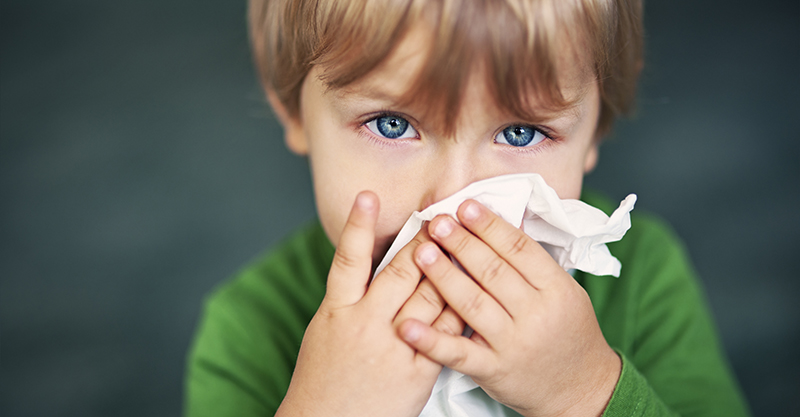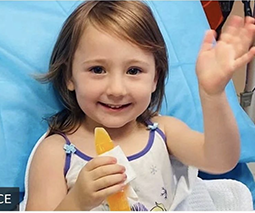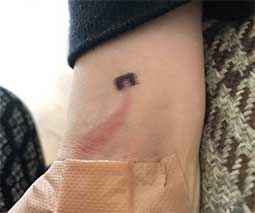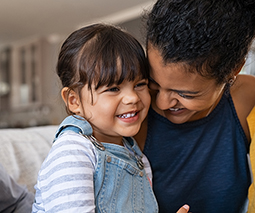7 ways to get kids to take their medicine

Kids can be the WORST when it comes to taking medicine, and if you have a fussy child who hates swallowing syrup or taking pills, it can make things very tricky at home, especially if your little one is unwell and you just want to make them feel better.
Whether it’s your feverish child who hates the taste of Panadol or your toddler with an ear infection who makes every antibiotics dose a massive battle, getting your child to take their medicine can end up more difficult than it needs to be.
Dr Tal Rapke, creator of ScalaMed, a digital portal that stores personal prescriptions details and helps patients keep on top of their medication, knows the battles that come with kids and medicine. With children of his own and paediatric experience, he’s learnt a thing or two about getting kids to take their medicine without it becoming an overwhelming battle.
He has the following tips to offer parents:
1. Use a favourite cup
You don’t have to use a dosing device to deliver medicine, which can be an instant put-off for kids. Once you’ve got the dose measured, Dr Tal suggests putting it in something the child recognises and loves. “One of the first things we learn as parents is being able to mask things for kids so they’re not so bad – whether it’s broccoli or medicine. So you can use a favourite cup that you would normally use for smoothies or apple juice, something your child loves.”
2. Disguise it in something sweet
Just like Mary Poppins once said, a spoonful of sugar can really help the medicine go down. Dr Tal recommends disguising medicine in something sweet like sugar or honey to help your child take their dose without too much fuss.
3. Check the volume
Syrups like Nurofen or Panadol come in a concentrated format for very young kids to help them take the dose quickly and easily, whereas medicines for older kids tend to offer dosages in greater volumes. Dr Tal suggests using the concentrated medicine for children who can’t handle large doses. Ask the pharmacist to help you adjust the dose for your child’s age and weight.
4. Bribery is okay
Dr Tal says that when it comes to taking medicine, it’s okay to use bribery. “Bribing is an old technique and this can be a time it’s worthwhile pulling it out, especially a long term bribe for a course of treatment. For example, you could say ‘We have to take this medicine for the next 6 days. If we get through it all, there’ll be a big prize at the end.’ Every day you could offer a down-payment towards the prize so the child sees it building up.”
5. Let your child be in charge
If your child is old enough and enjoys independence, you could let him be in charge of his medicine, for example, telling you that it’s time for the next dose and getting out the medicine for you to prepare. “Rather than have medicine become a source of conflict, you can let your child own the process so it’s not something you are forcing. You could use a reminder on your phone to alert your child to come to you for their medicine.”
6. Talk with your doctor or pharmacist
If you have used a course of antibiotics previously that you know your child couldn’t tolerate, Dr Tal recommends talking with your doctor about a different form of the drug. “It’s worth exploring if there are other ways or presentations or different brands that offer a different flavour. For example, Panadol comes in chewable tablets which can be more palatable than the syrup. If your child has an ear infection, there might be two or three different antibiotics available.”
7. When possible, pick your battles
If your child has a fever or virus and hates taking medicine, consider whether you really need to offer it, suggests Dr Tal. “There might be cases where it’s a low grade fever and the medication is to offer comfort. You could say to your child ‘This medicine will help you feel more comfortable. If you don’t want to take it, that’s fine, just let me know later on if you’re feeling unwell.’ That night might be a little more sleepless than usual, but sometimes it’s not worth sweating the small stuff. “









